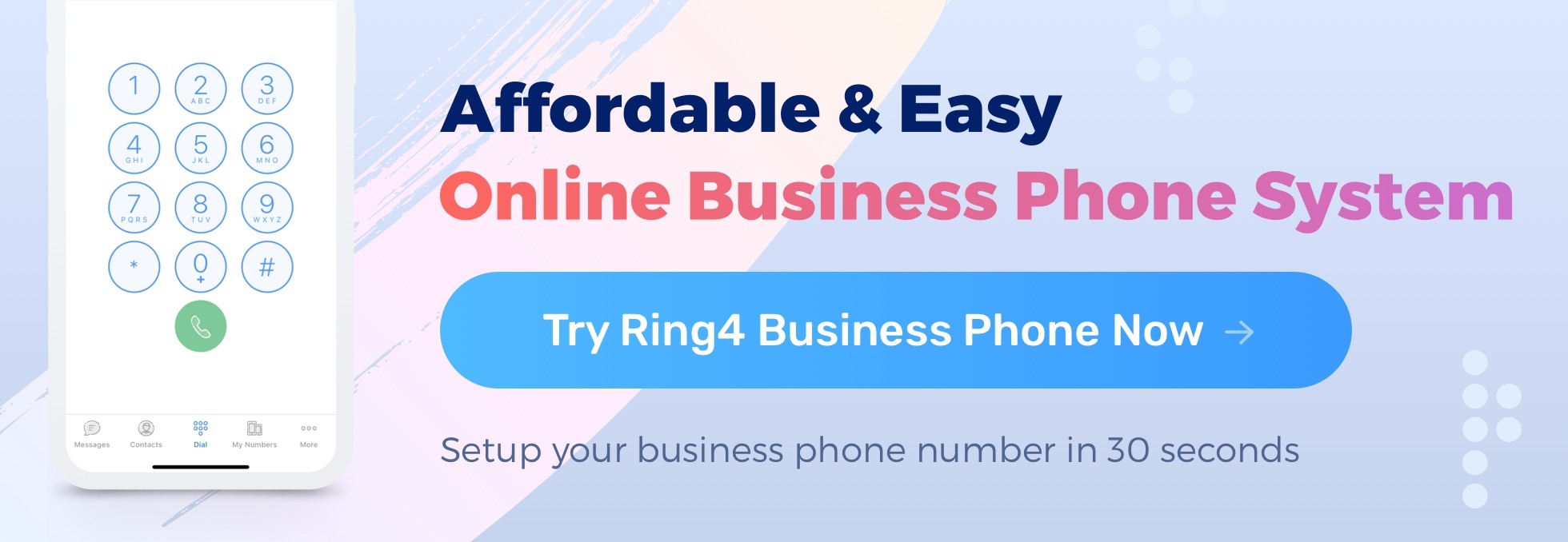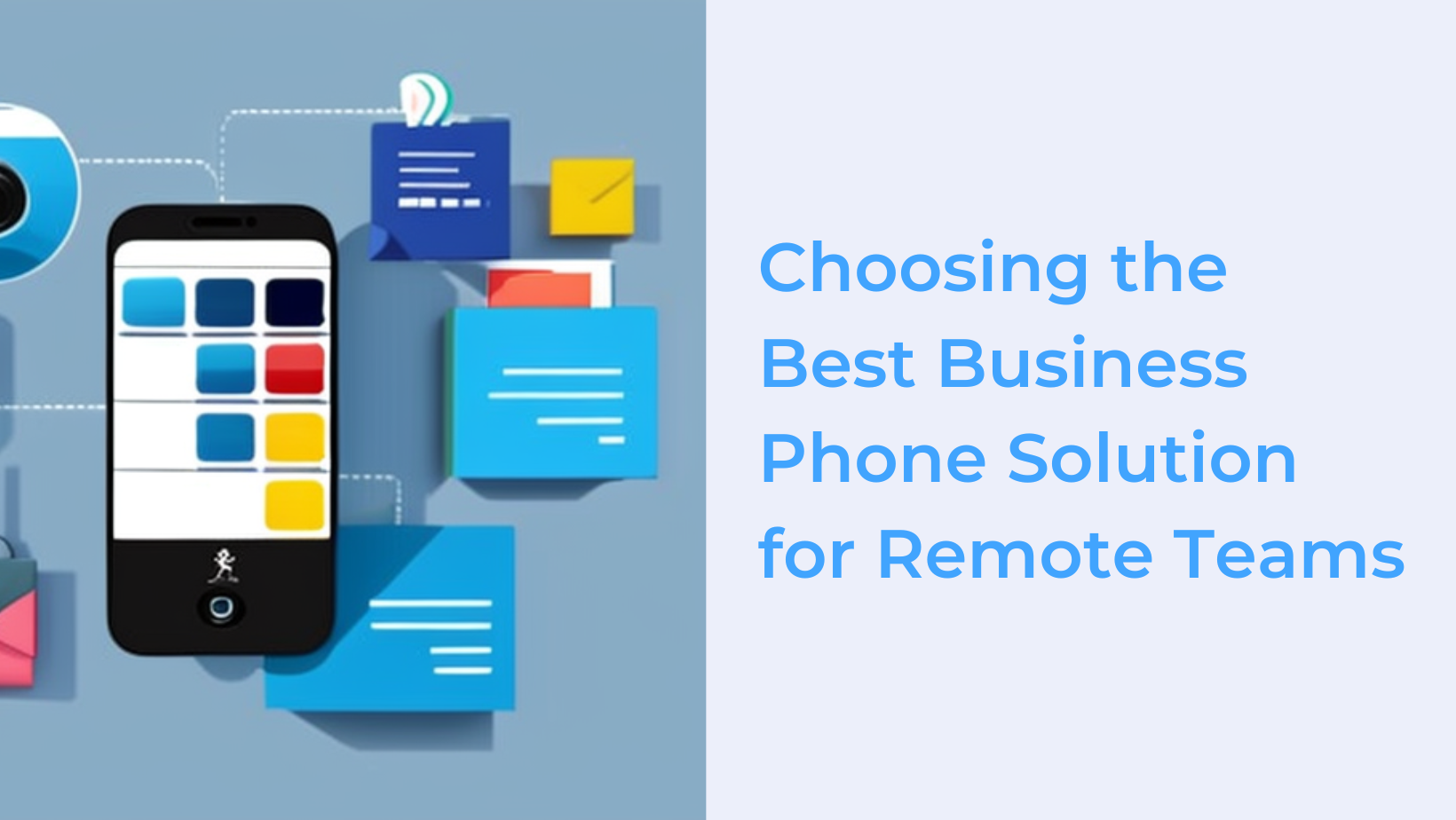Choosing the best business phone solution for remote teams can be a challenging task for any business owner or manager. With the rise of remote work, it's more important than ever to have a reliable and efficient way for team members to communicate with each other and with customers. In this article, we will explore the different types of business phone solutions available, and what to consider when choosing the best one for your remote team.
Business Phone Solutions Available
First, let's take a look at the different types of business phone solutions available. The most common types of business phone solutions include:
- Traditional landlines
- VoIP (Voice over Internet Protocol), and
- Virtual phone systems
Traditional Landlines

Traditional landlines are the oldest and most well-established type of business phone solution. They are reliable and easy to use, but they can be expensive to install and maintain. They also require a physical phone line to be run to each location, which can be a problem for remote teams.
Pros of Traditional Landlines
- Landlines are considered more secure than cell phones or internet-based services.
- When you make calls with a regular phone line, the audio quality is always crystal clear and there’s no risk of interference from external sources like radio waves.
- Traditional landlines do not need electricity to operate, so they remain functional even in cases of power outages or other emergencies.
Cons of Traditional Landlines
- Longer setup time - Wireless options such as VoIP apps on cell phones drastically reduce setup time and offer an easier way to stay connected with business contacts as well as family and friends regardless of your location.
- Traditional landlines require wired connections which can be difficult and/or costly to maintain.
- With a traditional landline, you’re also landlocked so to speak. With a virtual option on your mobile device, you can talk anywhere with Wifi.
Voice over Internet Protocol (VoIP)

VoIP, on the other hand, uses the internet to make and receive calls. This means that team members can make and receive calls from anywhere, as long as they have internet access. VoIP is also typically less expensive to install and maintain than traditional landlines. However, the quality of the call can be affected by the quality of the internet connection, which can be a problem in some areas.
Pros of VoIP Solutions
- You can use them anywhere.
- They are often both quick as well as easy to set up.
- Often much cheaper than other solutions such as traditional landlines.
Cons of Traditional Landlines
- Requires access to the internet to make calls.
- In some cases, depending on your provider, there can be a learning curve.
- You might need special equipment and software - again, this depends on the provider you choose.
Virtual Phone Systems

Virtual phone systems are a newer type of business phone solution. They use a cloud-based platform to make and receive calls, and team members can use a variety of devices, such as smartphones and computers, to make and receive calls. This means that team members can work from anywhere and still have access to the same phone number and voicemail. Virtual phone systems are typically more expensive than VoIP, but they offer more features and flexibility.
Pros of Virtual Phone Systems
- VPS provides the tools to keep businesses operating efficiently by allowing them to make and receive calls without having to invest in expensive hardware, such as traditional phone systems or landlines.
- VPS also eliminates the need for dedicated staff within an organization to manage telephone systems, since it is operated solely through software and hosted off-site by a third party provider.
Cons of Virtual Phone Systems
- One of the primary disadvantages of a virtual phone system is the lack of reliability compared to traditional landline systems.
- In cases where multiple users are sharing a single line or service outage occurs due to an overloaded server, callers may experience long wait times before getting through.
- Finally, they don’t always integrate well with existing business technology solutions.
Considerations for Choosing a Business Phone Solution
When choosing a business phone solution for your remote team, there are several things to consider:
- Cost: As mentioned before, traditional landlines can be expensive to install and maintain, while VoIP and virtual phone systems are typically less expensive. Consider your budget and what you are willing to spend on a phone system.
- Features: Consider what features you need for your business, such as voicemail, call forwarding, and conference calling. Some phone systems offer more features than others, so make sure to choose one that has everything you need.
- Scalability: As your business grows, your phone system needs may change. Make sure to choose a phone system that can scale with your business.
- Reliability: Choose a phone system that is reliable and has good customer support in case you run into any issues.
- Mobility: As a remote team, your team members are working from different locations and need to be able to make and receive calls from anywhere. Make sure to choose a phone system that offers mobility and can be used on different devices.
What Business Phone Solution is Best for You?
In conclusion, choosing the best business phone solution for remote teams requires careful consideration of various factors like cost, features, scalability, reliability and mobility. Traditional landlines are reliable and easy to use, but they can be expensive to install and maintain. VoIP and virtual phone systems are typically less expensive and offer more features, but the quality of the call can be affected by the quality of the internet connection. Make sure to choose a phone system that is reliable and has good customer support, and that can be used on different devices. Ultimately, the best business phone solution for your remote team will depend on your specific needs and budget.
A highly scalable and easy to use VoIP business phone solution you may want to consider is Ring4. With our application, you can set up a new phone number that can have you making business phone calls in mere minutes. Click here to get started for free today!

